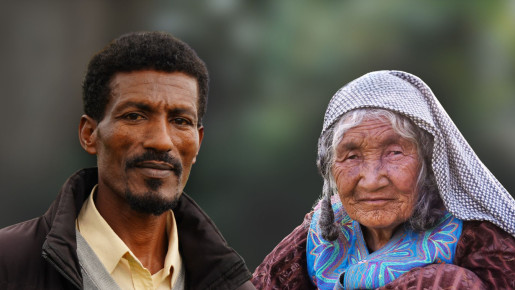How chickens are helping Cambodian farmers out of poverty
Published: Sep 9, 2016 Reading time: 5 minutes Share: Share an articleFor years a disabled couple has struggled to survive running a small grocery store from their modest home in Beoung Veng Village, Kampong Chnnang province. Without children to support them, Mr. Chak Him, 62, and Ms. Yem Meoun, 52, have tried to support themselves without depending on others. This has been difficult when both require wheelchairs and have limited opportunities to generate income.

Running a grocery store at home is suitable for Ms. Meoun as it means she doesn’t have to move far to get to her workplace. However, the tiny store only generates enough money to pay for their daily food. There is nothing left over for badly needed home repairs or to expand the number of products she has in her grocery store, which would grow her business.
In 2014, the family was invited to take part in the Community Livestock Market Development (CLIMAD) project, being implemented by People in Need (PIN) and their local NGO partners EPDO, SORF, PNKA, TDSP and AARR.
Improved income with better chicken farming techniques
The couple received training on chicken raising, delivered by the local Village Animal Health Worker and project staff. They also received a small grant from the project as capital to implement the techniques they learnt and to expand their chicken farm.
“I had raised a few chickens before. But I did not have a big chicken pen like this with different sections. Normally, I had to wait for up to seven months to be able to sell off the chickens, but most of the time, my chickens died from disease before I could sell them” said Him.
Him has received training and coaching on a range of improved livestock raising techniques, including how to build chicken pens for proper flock management, how to use vaccinations and other biosecurity measures, and how to prepare nutritious feed for the chickens from local resources.
The couple help each other every day to take care of their chickens and, as a result, they manage to sell chickens three times per year with a much better outcome than before.
“First, I got 210,000 riel ($52.5 USD), then I got 400,000 riel ($100 USD) (from selling my chickens), doubling the income from the first time. It has made a huge difference compared to how we raised chickens before. Now we know proper techniques and have access to vaccination services,” said Meoun, with a smile.
 The CLIMAD project
The CLIMAD project
With financial support from the European Union and the Czech Development Agency, the CLIMAD project works to sustainably improve the livelihoods of 18,000 rural families in Kampong Chhnang and Pursat provinces.
CLIMAD’s team does this by helping local veterinarians, veterinary companies and local shops to improve the quality, accessibility and demand for private, community-based veterinary and marketing services. Farmers are thus able to boost their incomes from livestock production as their livestock have better health. Veterinary service providers increase their profits, generating a win-win solution for everyone.
Training vets to deliver better services
In the 155 target villages in Kampong Chhang and Pursat provinces, the CLIMAD project has trained and equipped local vets to provide vaccination and treatment services, preventing the outbreak of diseases and curing animal illnesses occurring in their local communities.
The project has also helped vets to improve their business planning and marketing skills, so that they can build demand for their services and run a successful business.
“It is much easier and very helpful to have a local Village Animal Health Worker (VAHW) in our village. He comes to us whenever we call him. We did not have that before; that was why our chickens died whenever there was an outbreak of disease like cholera,” Meoun said.
Collective selling leads to better prices
To support Cambodian smallholder farmers like Him and Meoun in a sustainable way, CLIMAD’s team has ensured that farmers are linked to markets where they can sell their chickens. The project has worked with VAHWs and farmer groups to facilitate the collective sale of chickens, allowing farmers to earn a higher income for their chickens. The project has also helped farmers to develop relationships with various livestock traders, as a way to improve their negotiating power when selling, and has taught them how to plan and manage their production cycle, so that they can be ready to sell their chickens when prices are higher. For example, Him always sells his chickens during periods of high demand such as Khmer New Year and Chinese New Year, when they can earn between 18, 000 riel to 19,000 riel (4.5$ - 4.75$) per kilogram.
With the collective sale approach, the farmers get together to sell their chickens in a central place, which allows them to better negotiate the price with middlemen. The middlemen also benefit by saving time from not having to travel from home to home to collect the chickens.
“I am so happy that we can have this practice in place. It helps me to earn more income from my chicken raising. I could afford to repair my small home, which cost around 2 million riels ($500 USD). My next goal is to build a bigger grocery store, I only need 500, 000 riel ($125 USD) more so that I can sell a wider variety of products,” said Ms. Meoun happily.
You can dowload the case study here.



